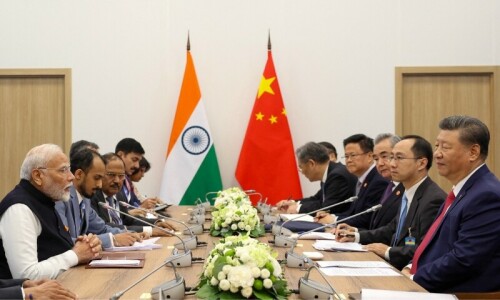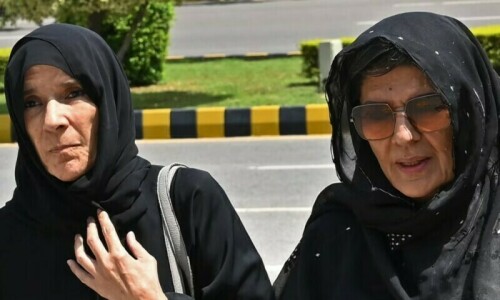Taliban supreme leader orders women to wear burqa in public: decree

Afghanistan’s supreme leader and Taliban chief on Saturday ordered the country’s women to wear the all-covering burqa in public — one of the harshest controls imposed on women’s lives since the Taliban seized power.
“They should wear a chadori (head-to-toe burqa) as it is traditional and respectful,” said a decree issued by Haibatullah Akhundzada that was released by Taliban authorities at a function in Kabul.
A spokesman for the Ministry for the Propagation of Virtue and the Prevention of Vice read out the decree, saying that a woman's father or closest male relative would be visited and eventually imprisoned or fired from government jobs if she did not cover her face outside the home.
They added the ideal face covering was the all-encompassing blue burqa.
Earlier this year, the Taliban’s religious police put up posters around the capital Kabul ordering Afghan women to cover up.
The poster, which included an image of the face-covering burqa, was slapped on cafes and shops by the Ministry for the Promotion of Virtue and Prevention of Vice.
Since returning to power in August, the Taliban have increasingly curtailed freedoms — particularly those of women and girls.
“According to Sharia law, Muslim women must wear the hijab,” the poster read.
In Kabul, women already cover their hair with headscarves, though some wear modest western clothing.
Outside of the capital the burqa, which became mandatory for women under the Taliban’s first regime in the 1990s, has remained common.
The Taliban have also announced a number of other restrictions, including asking Afghanistan's television channels to stop showing dramas and soap operas featuring women actors.
Last year, Taliban authorities said that women seeking to travel anything other than short distances should not be offered transport unless they are accompanied by a close male relative.
The guidance, issued by the Ministry for the Promotion of Virtue and Prevention of Vice, also called on all vehicle owners to offer rides only to those women wearing hijabs.










































